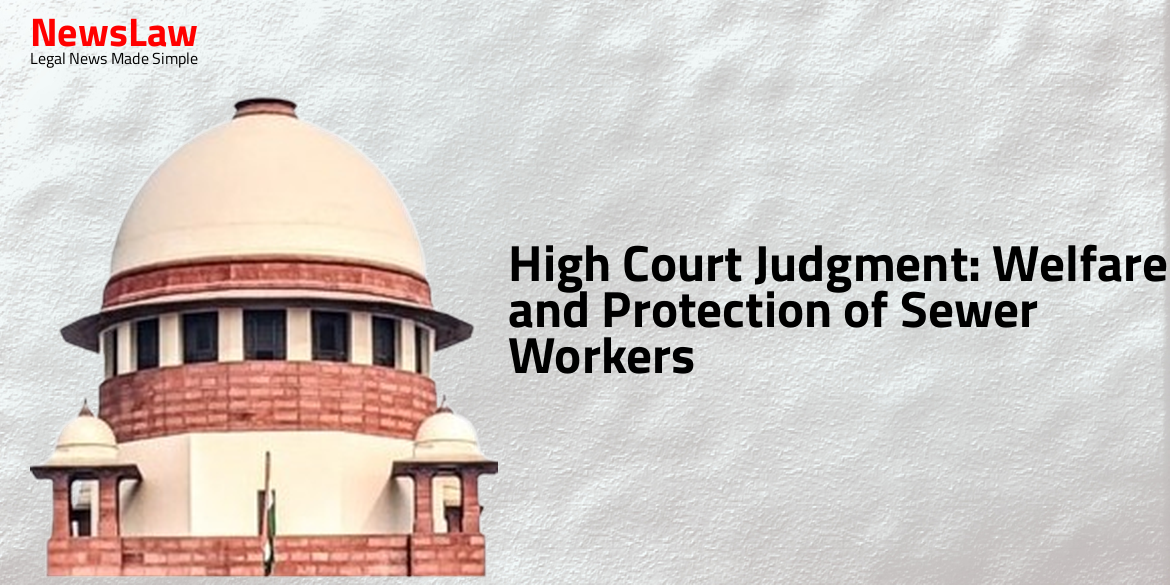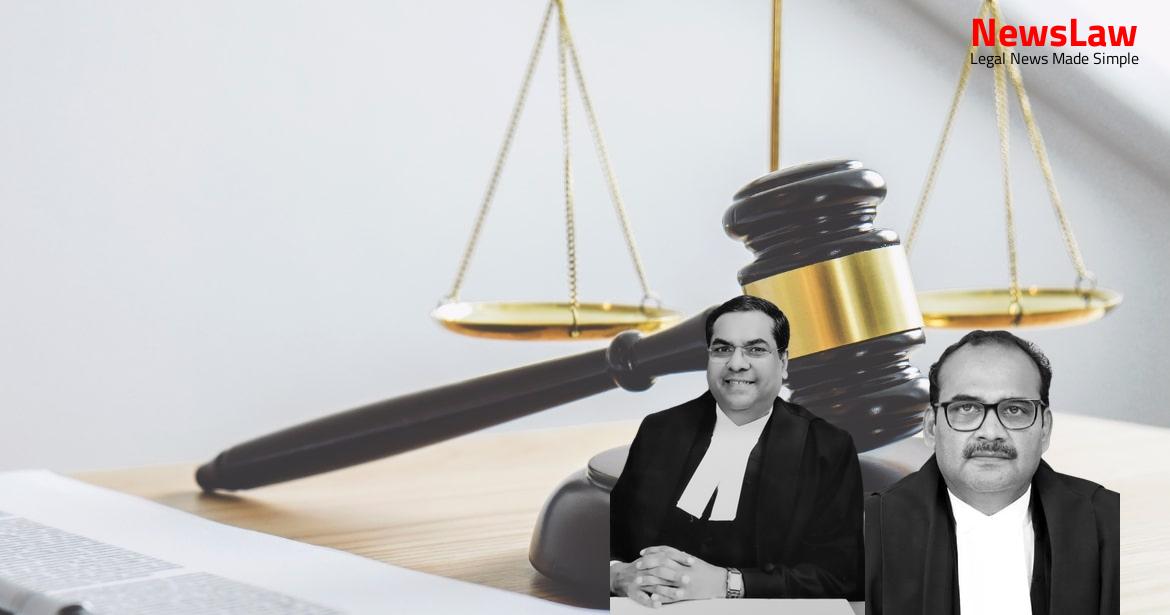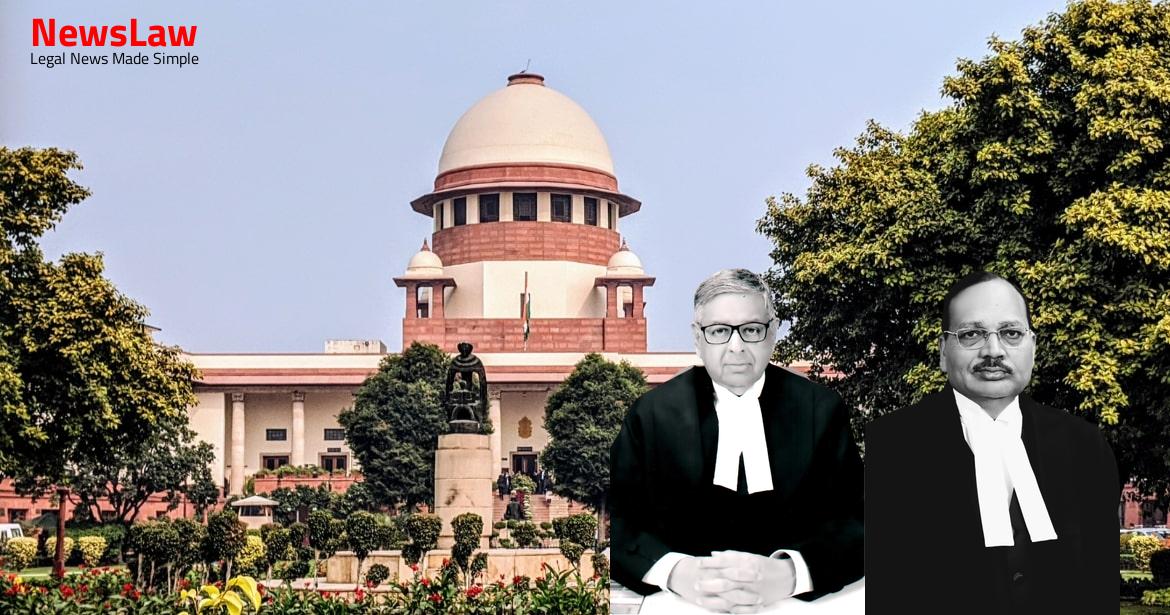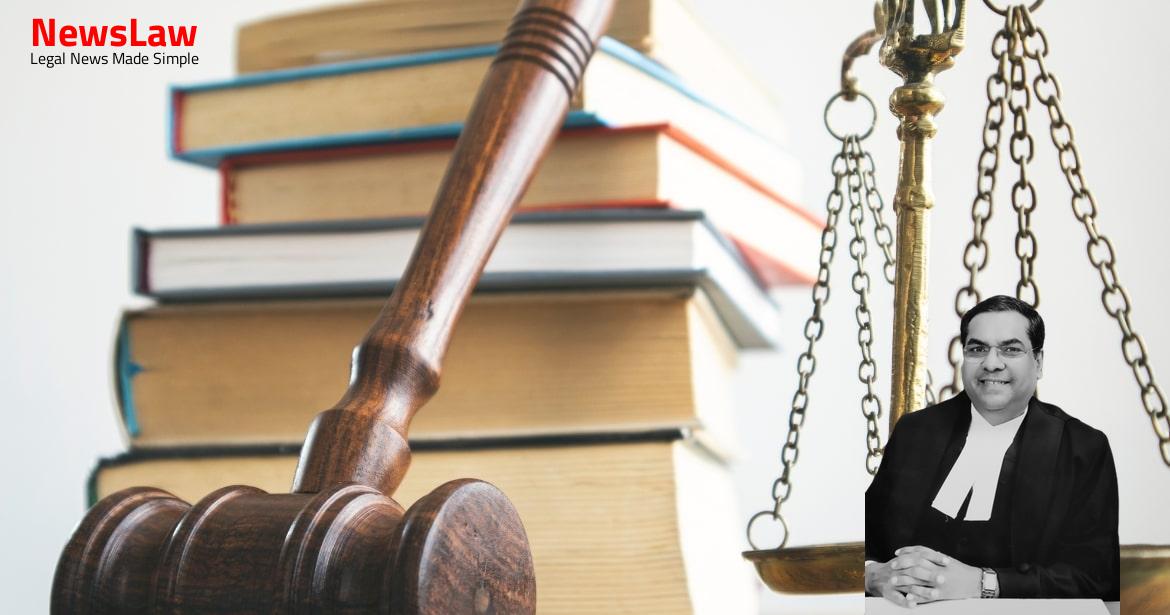In a significant legal development, the High Court has issued a judgment focusing on the welfare and protection of sewer workers. The case revolved around the rights and compensation of workers involved in hazardous cleaning activities. With detailed directions and guidelines, the court emphasized the need for safety measures and fair compensation for workers. This judgment sets a precedent for ensuring the well-being of sewer workers, highlighting the importance of their rights and entitlements.
Facts
- The petition is filed by the family members of three sanitation workers who died while cleaning a drain in Delhi.
- Compensation of Rs 10 lakhs should be given to the family of the deceased for each such death.
- Petitioner No. 1 is the widow of Late Shri Annu and Petitioner No. 2 and 3 are the brothers of Late Shri Joginder.
- The petition requests to restrain DJB from using private contractors for sewage related activities.
- The compensation of Rs 10 lakhs was awarded to the families of the deceased sanitation workers by a sub-contractor of DJB.
Analysis
- 1.1
- In the case of Preeti vs Union of India & Ors. in W.P.(C) No 15156/2023, the Court referred to the judgment in Balram Singh (supra) which would apply “mutatis mutandis” to the present situation.
- 1.2
- The Supreme Court in Balram Singh (supra) issued ameliorative directions for manual scavengers and hazardous cleaners.
- 1.3
- The Court emphasized treating “manual scavenging” and “hazardous cleaning” equally.
- 1.4
- Compensation amount for the present petitioners was increased to Rs.30,00,000/- from the previously fixed Rs.10,00,000/- in 1993.
- 1.5
- Strict implementation directions were issued by the Court in Safai Karamchari Andolan v. Union of India and Balram Singh Vs. Union of India for the Acts related to manual scavenging.
- 1.6
- The judgments highlighted the prohibition of forced labour and the need for providing protective gear for hazardous workers.
- 1.7
- Disregard or violation of the directives would lead to strict consequences as per the Balram Singh (supra) case.
- The Union and States are directed to ensure the complete eradication of manual sewer cleaning in a phased manner.
- Guidelines and directions should be issued to prevent individuals from entering sewers for any purpose.
- All departments and agencies at the Union, State, and Union Territories levels should incorporate these guidelines.
- Rehabilitation measures, including employment, education, and skill training, should be provided to sewage workers and the families of deceased workers.
- Compensation for sewer deaths should be increased to Rs. 10 lakhs and be applicable retroactively from 1993.
- Entering sewer lines without safety gear should be deemed a crime even in emergency situations to prevent manual scavenging practices.
- A mechanism for accountability in cases of sewer deaths during contracted work must be established by the appropriate government.
- A model contract should be devised mandating adherence to safety standards, with penalties for non-compliance, including possible blacklisting.
- Manual scavengers listed under the 2013 Act should be rehabilitated through cash assistance, scholarships, housing assistance, livelihood training, and other support.
- The compensation amount for manual scavengers should be revised accordingly.
- The Supreme Court issued detailed directions and guidelines to ensure the welfare and protection of sewer workers and their families.
- Compensation for sewer deaths was increased from Rs. 10 lakhs to Rs. 30 lakhs, with a minimum compensation set at Rs. 10 lakhs.
- In cases of disabilities due to sewer work, compensation ranges from Rs. 10 lakhs to Rs. 20 lakhs based on severity and economic impact.
- The National Legal Services Authority (NALSA) was instructed to assist in the process of compensation disbursement and policy framing.
- All Union, State, and Union Territories were directed to coordinate with commissions for the setup of committees and timely action on vacancies.
- A portal and dashboard were to be developed for comprehensive information on sewer deaths, compensation, and rehabilitation efforts.
- The directions were mandated for all statutory bodies, corporations, railways, and agencies under government control.
- Rehabilitation measures for sewer workers and their families were to be ensured by both Union and State Governments.
- Specific provisions were made to support dignified livelihoods and end manual scavenging, with emphasis on protecting workers’ rights and entitlements.
- Directions regarding payment of enhanced compensation not stayed
- Division Bench of the Court directed appellant to pay enhanced compensation
- Appellant directed to pay without prejudice to its rights and contentions
Case Title: REKHA AND ORS Vs. GOVT OF NCT OF DELHI AND ORS (2024:DHC:3958)
Case Number: W.P.(C)-9020/2017



